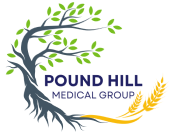Why have I been sent this link?
If you’ve been sent this link by your doctor, your recent blood tests show that you have Chronic Kidney Disease (CKD). “Chronic” means persistent or long term. It doesn’t mean severe, as some people think. In fact, most people with CKD will have a mild or moderate level of CKD. This page explains more about the condition.
What do the kidneys do?
The job of healthy kidneys is to filter waste out of the blood, which it turns into urine, to remove it from the body.
What is CKD?
CKD is a condition where the kidneys don’t work as well as usual.
How common is CKD?
CKD is very common. About 1 in 10 people will have kidneys that show some sign of CKD. It is much more common in older people, and around half of people aged 75+ have some degree of CKD.
This is often thought of as part of the normal aging process, rather than a true disease. For most people, CKD tends to get worse very slowly, over a period of several years.
Why is it important to know if I have CKD?
People with any degree of CKD have an increased risk of developing heart disease or having a stroke. This is why it’s important to detect even mild CKD. Treatment may not only slow down the progression of CKD but also decrease the risk of developing heart disease or stroke.
What symptoms can I expect?
You are unlikely to feel unwell or have any noticeable symptoms with mild or moderate CKD (stage 1 to 3). Symptoms tend to develop when CKD becomes more severe (stages 4 to 5). These symptoms can vary widely but may include:
- Tiredness
- Itchy skin
- Muscle cramps
- Fluid retention (swelling of the feet, ankles, face or hands)
- Increased urinary frequency (going to the toilet more often)
How can I help myself?
Living a healthy lifestyle is the most important thing you can do to decrease the risk of CKD worsening. This includes:
- Decreasing your salt intake
- Eating a healthy diet
- Exercising regularly
- Losing weight if you are overweight
- Stopping smoking if you smoke
What happens now?
If you’ve been sent this page by your doctor, we’ve made a note on your record that you have CKD. This alerts our staff when your records are open to make sure we are prescribing appropriate treatments and so that your condition can be monitored appropriately. Mostly, we will check that you get a yearly blood test for your kidney function. This may be done at the same time as other blood tests.
Do I need any specific treatment?
Most people with mild to moderate CKD don’t need any specific treatment. The aim is to relieve any symptoms that may occur, and to reduce the risk of CKD worsening or developing any complications. This includes ensuring good blood pressure control and good sugar control if you are diabetic. You may also be offered some medications to reduce the risk of developing cardiovascular disease, called statins.
What else do I need to know?
There are certain medications that are not recommended on a regular basis if you have CKD.
The main group of medications you need to avoid are non-steroidal anti-inflammatory drugs (NSAIDS), also known as anti-inflammatory medications. These include common drugs such as ibuprofen (nurofen, brufen, ibufen), diclofenac (voltarol) and naproxen. If you need to take any medications over the counter, or take any herbal supplements, please check with a pharmacist to ensure these are safe for you to take.
